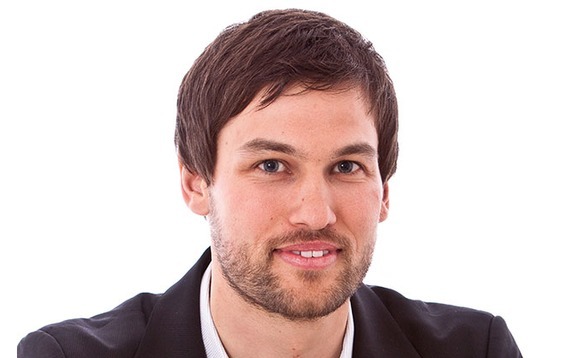
Returns just as crucial for social impact investors in Germany

As social impact investing gathers pace across Europe, Harriet Bailey takes stock of activity in Germany and finds that financial returns are just as important as social returns
The hub of social impact investing in Germany has found itself concentrated on a few streets in Munich, close to the Theresienwiese – better known as the home of the Oktoberfest. BonVenture set up there in 2003, at a time when the four founding families "found no other such fund in continental Europe", according to managing director Erwin Stahl, a former investment manager at Wellington Partners who has been at the helm of BonVenture since the beginning. In comparison, Ananda Ventures' Social Venture Fund (SVF) is a relative infant, founded by entrepreneur and managing director Johannes Weber (pictured) in 2010.
Despite their close proximity, the two firms diverge on their regional focus. BonVenture invests in German-speaking Europe, whereas SVF has a wider, pan-European focus. This, Weber explains, was a conscious decision: "We wanted to raise a fund of a certain size and we felt that the German market alone didn't have enough really outstanding social enterprises to invest in. We also really liked the idea of scaling impact across borders."
Self-replicating
Nevertheless, the social dimension underpins both companies' investment strategies, as Stahl explains: "The founding families saw that there were socially responsible venture capital firms in the US. They realised that creating a social impact fund would be an attractive way to invest money, to see returns and to reinvest it again with other social entrepreneurs, rather than simply donating money to non-profits."
The funds combine the social element experienced by endowments and foundations when donating with the risk and return model inherent in traditional venture capital funds. Key performance indicators for social impact are agreed upon at the outset for each investment and reported on throughout. "Our carried interest is dependent on the achievement of social impact goals," says Weber. "To my knowledge, we are the first fund in the world to do something like that. Those measurements are just as important as financial returns to us – and are much harder to do."
SVF concentrates solely on the for-profit sector and usually conducts hybrid investments, combining a subordinated debt structure with equity. BonVenture, on the other hand, commits capital in three ways: loans to non-profits, generating a guaranteed interest rate of 6-8%; growth capital to for-profit social enterprises; and hybrid investments. "If you integrate impact, risk and return, you have an advantage against a pure financial investor, who would only be looking at returns," says Stahl.
When asked about the perceived trade-off between financial returns and social impact, both firms are realistic about the fact that such funds do not generate "VC-like returns", but argue that generating a financial return underpins social impact investing. "Most people still have difficulty accepting this hybrid way of investing and understanding there doesn't have to be a trade-off," says Weber. "We only look at business models where the social impact is inherently built in: at our portfolio company auticon, for instance, people with autism work as IT consultants on big data projects. The more autistic people we employ, the more turnover we make, so we increase both our profits and our social impact."
Across Germany, awareness of this new market segment is growing: in the 11 years since inception, BonVenture has seen more than 4,000 applications for funding and is due to begin raising its third fund in 2015. For the first time, it will target institutional investors, including the European Investment Fund and its Social Impact Accelerator. SVF was the first social impact fund to receive money from it and already counts both UniCredit and HypoVereinsbank among its backers. "All of our investors have gone through a process of reflection about what to do with their money and what kind of return they want. The strongest motivator for them is that they believe this kind of investing is the future," says Weber. As 2015 gets under way, the snowball effect will doubtless kick in as increasing numbers of investors realise how fundamental sustainable investment is to financial sustainability.
Latest News
Stonehage Fleming raises USD 130m for largest fund to date, eyes 2024 programme
Sponsor acquired the public software group in July 2017 via the same-year vintage Partners Group Global Value 2017
Stonehage Fleming raises USD 130m for largest fund to date, eyes 2024 programme
Czech Republic-headquartered family office is targeting DACH and CEE region deals
Stonehage Fleming raises USD 130m for largest fund to date, eyes 2024 programme
Ex-Rocket Internet leader Bettina Curtze joins Swiss VC firm as partner and CFO
Stonehage Fleming raises USD 130m for largest fund to date, eyes 2024 programme
Estonia-registered VC could bolster LP base with fresh capital from funds-of-funds or pension funds









